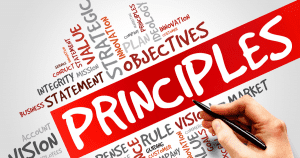In the realm of management philosophy, Respect for People (Jinji Ittai) stands as a cornerstone of Japanese business culture. Rooted in the belief that people are the most valuable asset of any organization, Respect for People emphasizes the importance of treating individuals with dignity, empowering them to contribute their fullest potential, and fostering a culture of collaboration, trust, and mutual respect. Join us as we delve into the essence of Respect for People, uncover best practices, and explore how to implement this transformative practice in your organization.
Thank you for reading this post, don't forget to subscribe!Unveiling Respect for People: The Heart of Human-Centric Leadership

Respect for People goes beyond mere policies or procedures; it embodies a fundamental shift in mindset—a recognition of the inherent value and dignity of every individual within the organization. Whether they are frontline workers, managers, or executives, every person deserves to be treated with respect, empathy, and fairness.
Key Principles of Respect for People

1. Empowerment and Autonomy
Respect for People empowers individuals to take ownership of their work, make decisions autonomously, and contribute their unique skills and insights to the organization. By fostering a sense of autonomy and empowerment, organizations can unleash the creativity, initiative, and innovation of their employees.
2. Collaboration and Teamwork
Central to Respect for People is the principle of collaboration and teamwork, where individuals work together towards shared goals, support one another, and celebrate collective achievements. By fostering a culture of collaboration, organizations can break down silos, promote knowledge sharing, and drive cross-functional innovation.
3. Continuous Learning and Growth
Respect for People encourages individuals to pursue continuous learning and personal growth, both professionally and personally. Organizations should invest in employee development initiatives, provide opportunities for skill-building and career advancement, and create a supportive environment where individuals can thrive and realize their full potential.
Implementing Respect for People: Practical Strategies for Success
1. Lead by Example
Leaders must embody the principles of Respect for People in their words, actions, and decisions. By demonstrating empathy, listening actively, and treating others with respect, leaders can set the tone for a positive and inclusive work environment.
2. Foster Open Communication
Create channels for open and transparent communication where employees feel comfortable sharing their ideas, concerns, and feedback. Encourage two-way dialogue, active listening, and constructive dialogue to build trust and foster a culture of respect and collaboration.
3. Recognize and Appreciate Contributions
Acknowledge and celebrate the contributions of individuals and teams, recognizing their efforts and achievements. Whether it’s through formal recognition programs, peer-to-peer appreciation, or simple words of thanks, showing appreciation fosters a sense of belonging and motivation.
Real-World Impact of Respect for People: A Case Study
Let’s examine the success story of XYZ Corporation, a company that embraced Respect for People to drive employee engagement and organizational success. By fostering a culture of respect, empowerment, and collaboration, XYZ Corporation achieved a 20% increase in employee satisfaction, a 15% reduction in turnover, and a significant improvement in productivity and innovation.
Conclusion: Embrace Respect for People for Organizational Success
In conclusion, Respect for People offers a powerful framework for fostering collaboration, empowerment, and mutual respect in the workplace. By embracing the principles of empowerment, collaboration, and continuous learning, organizations can unlock the full potential of their employees and drive sustainable success in today’s dynamic business environment.
 hroptimum
hroptimum



